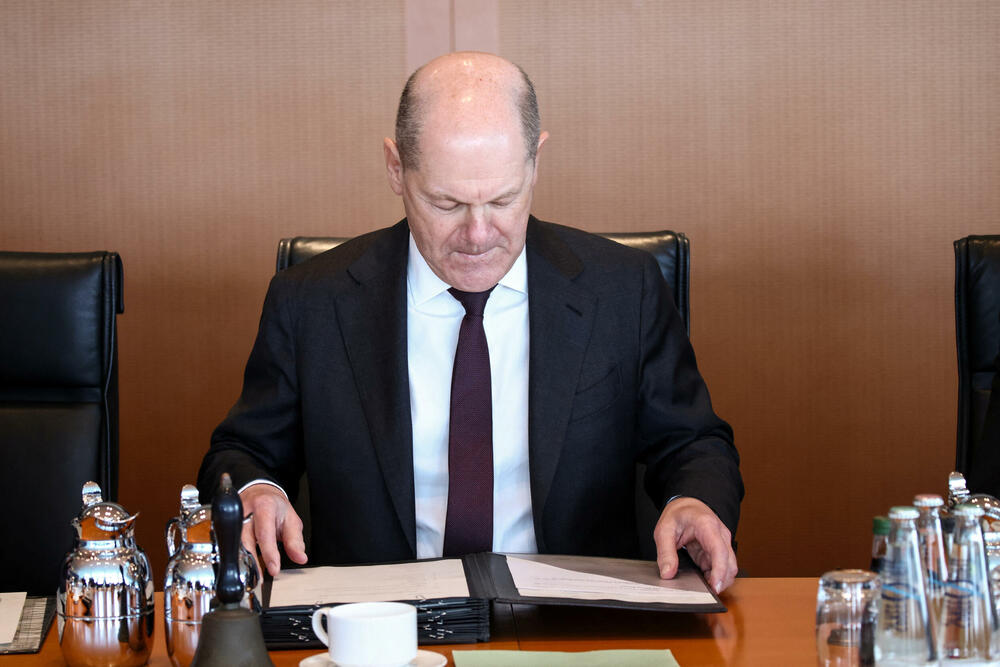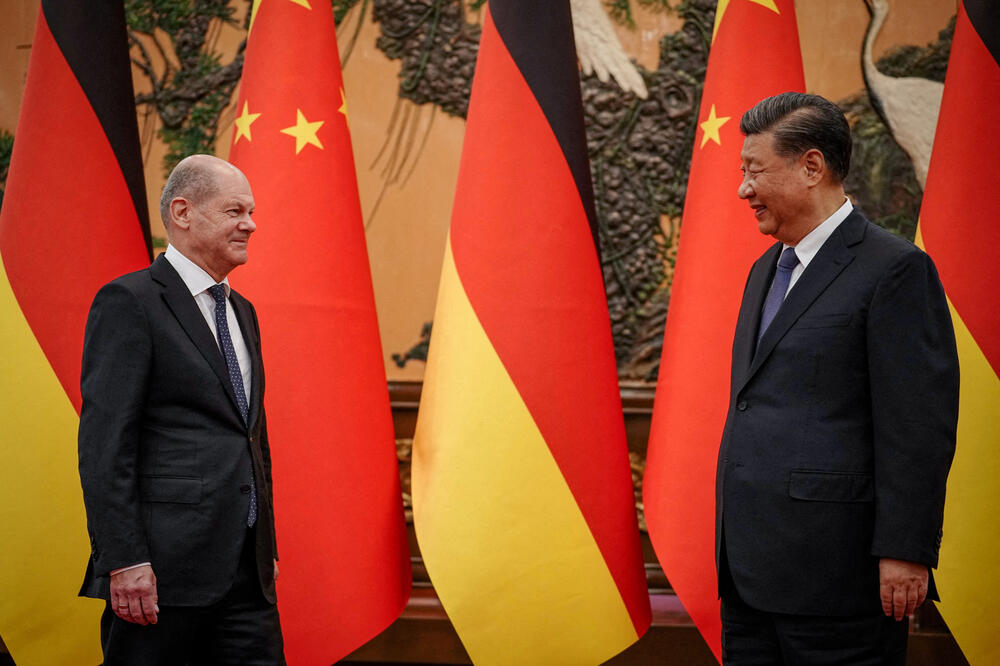Last year, Germany launched a "de-risking" strategy towards China, but tomorrow Chancellor Olaf Scholz heads there for a high-profile visit hoping to strengthen ties at a sensitive time, as the US and EU threaten to crack down on Chinese goods in disputes over subsidies.
At a time when the German economy is stagnating, its companies are advocating for a fairer approach to the Chinese market, which, according to their claims, still favors local companies despite promises to the contrary, Reuters writes.
At the same time, China is likely to put pressure on Berlin not to support EU measures against the car industry, equipment for solar and wind farms that Brussels considers to be too cheaply placed on the European market.
China's economy is also in trouble, with factories there being criticized for producing more goods than they can sell locally.

The visit is also overshadowed by the possible return to the White House of Donald Trump, who has threatened to increase trade tariffs on all countries, including Germany.
Reuters also estimates that as US aid to Kiev falters, Scholz will ask China to reconsider its support for Russia's war economy.
"The Europeans urgently need to clarify how they can position themselves as a pillar between the US and China without being trampled between their conflicts," said Maximilian Butek, head of the German Chamber of Commerce in eastern China.
In plain language, German officials said yesterday that Beijing's support and exports to Russia are enabling Moscow to wage war in Ukraine and "tarnish China's image" in Europe and beyond.
However, they also said that Beijing can play a positive role in curbing tensions in the Middle East.
Germany coordinated Scholz's visit with the United States, France and the European Commission.
Scholz is determined to press China to fulfill its promise to level the playing field for companies, which they say are still waiting for concrete steps, and three studies published this week highlight the concerns.
One study found that nearly two-thirds of companies feel discriminated against in the Chinese market.
The CEOs of leading companies, such as Siemens, and three ministers are going to China with Solac, which underlines the importance of the visit.
Shi Jinong, a professor at Renmin University's School of International Studies in China, said it was important for Beijing to win over Germany given the EU's efforts to limit China's green energy exports.
"Influencing Germany - which is inclined to follow its allies in trade restrictions with China, but is still quite hesitant and slow to react - to oppose this at this time is really important for China," he said.
Scholz will visit Shanghai, Chongqing and Beijing where he will meet with President Xi Jinping and Premier Li Jiang.
Miko Hutari, director of the Merix Institute in Berlin, calls it a "re-engagement" and stabilization of the relationship. He called on Scholz to emphasize that Germany has a special role within the EU and that he does not want Brussels to take harsh actions in trade disputes.
Economy Minister Robert Habek and Foreign Minister Analena Berbok, who angered Beijing last year by calling Xi a "dictator", are likely to visit China next.
While German companies are closely monitoring the possible impact of an escalating trade war on their investments in the world's second largest economy, the EU is also facing a dilemma. For example, China's cheap imports of solar and wind farm equipment could help it meet its climate goals, but could hurt local industries.
"I think there is no trust on either side, so the visit is seen as a good sign by the Chinese," said Butek of the German Chamber of Commerce.
"We insist on open markets because it is crucial for our survival. The cost of losing the market here is much higher than what we gain from import tariffs on Chinese goods."
Bonus video:




